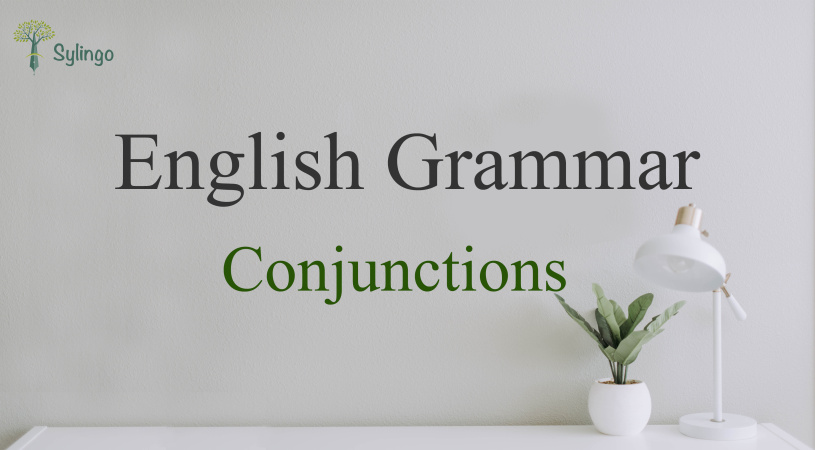There are several types of conjunctions in language with the same function. We will discuss them in this lesson.
Types of conjunctions
1- Coordinating conjunctions
2- Correlative conjunctions
3- Subordinating conjunctions
Coordinating conjunctions
They are words that join two or more elements of equal importance and structure, like words, phrases, or clauses. We use them with compound sentences in between the elements, not at the beginning or end. You can remember them easily by the acronym (FANBOYS).
- For
- And
- Nor
- But
- Or
- Yet
- So
And
It is used to add further information or listing items.
Examples:
I bought fruit and bread.
I swam and ran this morning.
Or
It is used to show alternatives and different options.
Examples:
Does he like hot or cold drinks?
We can eat now or when we go back home.
For
It is used to express the reason or purpose behind something. It can replace (because, since, or as).
Examples:
She slept early, for she had to wake up at 7 a.m.
I want to buy a cake for it is my friend's birthday.
Nor
It is used to connect negative sentences.
Examples:
I don’t have enough money, nor do I work.
He didn’t learn English, French, nor Spanish.
But
It is used to show the difference between two statements.
Examples:
I liked the blue shirt. But I didn’t have enough money to buy it.
I loved the food, but it was a bit salty.
Yet
It is used to express unexpected results or to show a sudden event occurred because of previous events in a sentence.
Examples:
I arrived late for the conference, yet it hasn't started.
I studied hard for the exam, yet I failed.
So
It is used in meaning (for this reason) to show results.
Examples:
It was cold yesterday, so we had to cancel our plans.
She was feeling unsafe, so she called her father.
Note: These conjunctions help to omit redundant words in a sentence.
Correlative conjunctions
They come in pairs, but we use them in different places in a sentence. They connect an independent clause and a dependent clause. Similar to coordinating conjunctions, correlative conjunctions are used to link elements of equal importance and structure.
- Either … or
- Neither … nor
- Not only … but also
- Both … and
- Whether … or
Examples:
- She either goes with her dad or her friend to school.
- Neither Maya nor I agreed to do this.
- The children were not only feisty but also noisy.
- Both Sarah and Adam play the piano.
- Whether you like it or not, you have to eat vegetables.
Note: When using (Either/ or - Neither/ nor), we need to ensure subject-verb agreement, as the two subjects can come both in singular or plural, or one is singular, and the other is plural. In the last case, the subject-verb agreement is with the closer subject to the verb.
Example: Neither Lina nor her parents have been to Italy.
Subordinating conjunctions
They join a dependent clause to an independent clause, and they come at the beginning of a dependent clause. There are many types of conjunctions categorized by meaning. Also they can come as single words, like:
- After
- Before
- Although
- Because
- Since
- When
- Where
- Whether
- While
- That
Or they can come as phrases, such as:
- Even though
- In order to
- As soon as
- Even if
Examples:
- We went to eat at the restaurant because our fridge was empty.
- The clinic closes at 5 o’clock unless we have an emergency.
- The class starts as soon as the teacher arrives.
- Her car works just fine even though it hit the wall.
Note: The difference between relative pronouns and conjunctions is that the subject follows the conjunctions in a sentence, while the relative pronouns come as a replacement for a subject.
That was all about conjunctions and their types. If you have any questions or suggestions, you can share them in the comments section below.
Exercise
Chose the right conjunction.
1- I ate … I was hungry.
( so, although, because)
2- You can have beef … chicken.
( either, or, also)
3- They will gather this weekend. … I will cancel my plans.
(So, and, Besides)
4- I sold my car last week, … I will buy a new one.
(that, but, even though)
5- I ate … drank an hour ago.
(yet, and, but)
6- He not only was speeding … got a ticket.
(or, nor, but also)
7- I cleaned my room … my mom was at work.
(while, if, besides)
8- … my brothers and sisters were out of town.
(Both, Whether, and)
9- She has two jobs … help her family.
(even if, in order to, although)
Answers
1- because
2- or
3- So
4- but
5- and
6- but also
7- while
8- Both
9- in order to





